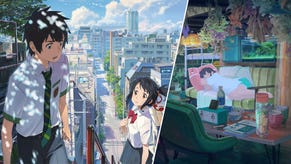PlayStation is starting to shut down Japan Studio – report
Japan Studio – known for its work on first-party PlayStation classics like Gravity Rush, The Last Guardian, and Ape Escape – is reportedly winding down development.
According to an in-depth new report from VGC, the Knack, LocoRoco and Patapon developer has seen the "vast majority" of its staff let go ahead of their contract renewal date of April 1, following reports that Sony 'sidelined' the studio late last year.
It looks like most of the talent in the long-running studio has been let go, with Sony keeping on just the localization and business teams. It also appears ASOBI Team, the folks behind the wildly popular Astro Bot games, have been ringfenced and will continue making games as a studio in their own right.
But the Japan Studio wasn't just responsible for creating its own titles; it was often employed as an auxiliary studio that would help out with other Sony projects via the External Development Department. Demon's Souls and Bloodborne both have Japan Studio in the credits, for example.
It's not massively surprising to see this happen now. Over the past few years, a number of key staff from the studio have publically announced their departure.
Kazunobu Sato (lead designer of PlayStation 3 title Puppeteer and worked on The Last Guardian), Keiichiro Toyama (director of Silent Hill and the Gravity Rush series) and Junya Okura (lead designer on the Gravity Rush series ) left Sony in 2020 to form Bokeh Game Studio. The studio recently revealed the first information about its upcoming horror game.
More recently, Bloodborne producer Masaaki Yamagiwa also announced via Twitter that he has left Japan Studio (below).
VGC reports that sources familiar with the situation at Japan Studio claim the developer was not profitable enough, and it appears there was internal friction about how the studio should proceed in the future: Japan Studio wanted to create games with Japanese gamers in mind (and the global market second), while PlayStation HQ was pushing for games with more international appeal, lead by PlayStation's efforts in the European and North American markets.








